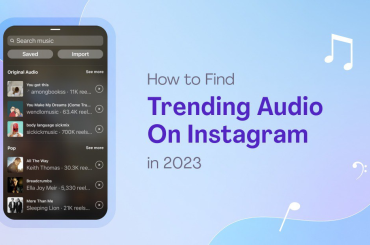Search engine optimization involves a lot of factors that can make a difference to your website. Here are some of them. These include on-page factors, Google Analytics, Schema markup, and Branded queries. Here are some tips to get you started:
On-page factors in SEO are factors on your website itself. These include technical set-up, the quality of your website’s code, and the content on your page. Other factors that go into on-page SEO are social media attention, and off-page marketing activities. The goal of off-page SEO is to obtain more links that point to your site. More relevant links to your site will improve your ranking in search results.
The structure of your site is the foundation upon which the rest of your SEO strategy is built. If you make a mistake on one of these factors, you will be penalised by the search engine. Moreover, on-page SEO is a process that can take a while and may need to be adjusted periodically. However, once you have a solid foundation, the rest can build on that. So, make sure to make the necessary changes to your on-page SEO strategy.
When it comes to SEO, knowing how to interpret Google Analytics data is vital to achieving your goals. Google Analytics helps you measure the number of visitors and their behaviour on your site. By tracking the number of visitors per page, you can make necessary changes to improve your site’s SEO. Google Analytics also shows the bounce rate of individual pages so you can identify those with the highest bounce rates. High bounce rates have been a factor in page ranking in the past. Google penalise sites with high bounce rates.
To determine whether your pages are receiving high page rankings, you can use Google Analytics. Moreover, GA provides click data. You can check the number of visitors that viewed your page after they searched for a particular term. If the search is for a specific term, you can set up an alert for it. To monitor how many visitors have viewed a particular view, you can set up search engine alerts both globally and per view. Nevertheless, you should be prepared for the inevitable “404 – Page Not Found” error. To avoid this, you must have a thorough analysis of your website.
If you’re wondering whether schema markup for SEO is worth using, consider these pros and cons. If used correctly, schema markup can dramatically improve your website’s search engine rankings. This method makes it possible for Google to understand more of the content on your site and give it richer SERP real estate. For example, if your website is a hotel, schema markup can help it show up at the top of search results for upcoming events and other information.
This type of markup is buried in the backend of your website, where it can only be seen by searchers. But when searchers click on these rich snippets, they’ll see your content and get a more accurate understanding of your site’s content. Depending on your niche and industry, you can even double your organic traffic! This kind of markup is extremely beneficial for improving your content by making it more detailed. You can target rich snippets on topics ranging from restaurant reviews to sports events.
To create branded search terms, you should do keyword research using the brand name and Google’s analytics. You can also use customer service logs and Answer the Public results to find related queries. Once you have a list of branded search terms, prioritise them based on their volume. Use these branded search terms to create a blog post or FAQ section. You can use the same process to create branded search terms in Google AdWords, which will boost your visibility in the results.
You can also use review and comparison queries as inspiration for your content strategy. In addition to using branded comparison queries to boost traffic, these keywords also generate significant volume for brand names. If you have a product or service to sell, consider developing a dedicated page to research and review. After you’ve done this, evaluate which pages rank for branded queries to get the most brand visibility. For example, the homepage may get more brand visibility, while the support content may be relevant for highly-intentional queries.
Good link building can help you establish your brand as an authority in your industry. By writing valuable content and sharing it with others, you can show your expertise in your field. This will help people to trust your message, and it also gets you links from other authoritative websites. It is easy to create links when you know your target audience and have a solid idea about what they want. Here are some tactics to help you create more links:
Natural links are links that do not reside in sponsored content or have tracking parameters. They are naturally embedded in content to add value to the reader. They are most likely to be included in blog posts, images, and product listings. Although they can take more time, they are still effective. They are one of the safest and most effective ways to promote a website. And, if done correctly, they can lead to better rankings for a website.




